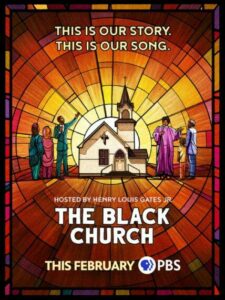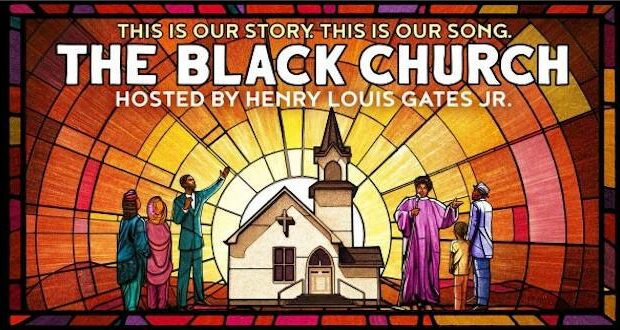Just in time for Black History month PBS is airing a two-part series about the rich 400-year history of the black church in America. “The Black Church: This is our Story, This is Our Song,” features interviews with a wide range of individuals, from Christian singer BeBe Winans to Oprah Winfrey. Hosted by Dr. Henry Gates Jr. (Reconstruction) the episodes, which are 4 hours combined, air Feb. 16 and 17 at 8pm Central on the network and will also stream PBS.org.
 The series looks at the history and culture of black Christians, exploring diverse faith communities as they dealt with slavery, emancipation, hope and change.
The series looks at the history and culture of black Christians, exploring diverse faith communities as they dealt with slavery, emancipation, hope and change.
“Our series is a riveting and systematic exploration of the myriad ways in which African Americans have worshipped God in their own images, and continue to do so today, from the plantation and prayer houses, to camp meetings and store-front structures, to mosques and mega-churches,” says Gates.
Joining Gates in producing the four-hour program is Alphonse Fletcher, University Professor at Harvard and director of the Hutchins Center for African and African American Research. Fletcher’s expertise helped trace the four-century-old history of the Black church revealing a story of “survival and grace, organizing and resilience, thriving and testifying, autonomy and freedom, and solidarity.”
The documentary reveals how Black people have worshipped and, through their spiritual journeys, improvised ways to bring their cultural traditions from Africa to the New World, while translating them into a practice of Christianity that was not only truly their own, but a redemptive force for a nation.
In addition to Winfrey and Winans, participants in the series include John Legend; singer and actress Jennifer Hudson; Presiding Bishop Michael Curry of The Episcopal Church; gospel legends Yolanda Adams, Pastor Shirley Caesar, Rev. William Barber II; and numerous others.
In a press release PBS states that “Through their interviews, viewers will be transported by the songs that speak to one’s soul, by preaching styles that have moved congregations and a nation, and by beliefs and actions that drew African Americans from the violent margins of society to the front lines of change.
For many, the Black church is their house of worship. For some, it is ground zero for social justice. For others, it is a place of transcendent cultural gifts exported to the world, from the soulful voices of preachers and congregants, to the sublime sounds of gospel music.
One of the most famous quotes of Rev. Dr. Martin Luther King, Jr., was that going to church in America also was “the most segregated hour” of the week. The Black Church explores the changing nature of worship spaces and the men and women who shepherded them from the pulpit, the choir loft and church pews. The churches are also a world within a world, where Black Americans could be themselves; and the epicenter of the freedom struggle that revolutionized the United States across slavery and abolition, Reconstruction, Jim Crow and the Great Migration, and the civil rights movement.
“This is the story and song our ancestors bequeathed to us, and it comes at a time in our country when the very things they struggled and died for — faith and freedom, justice and equality, democracy and grace — all are on the line,” states Gates. “No social institution in the Black community is more central and important than the Black church.”

The Rev. Carieta Cain Grizzell and Henry Louis Gates Jr. talk in the sanctuary of the Mother Emanuel African Methodist Episcopal Church in Charleston, S.C.
Throughout the series, viewers will witness much of this world expand out to politics, culture and education, as churches are born, denominations are fractured, and leaders are made and critiqued in their quest to bring the Word to the world and the world to a higher ground.
At once a liberating and traditional center of power, the church in Gates’s telling is at a crossroads today, torn between social issues and justice, human rights and inequality, secular and spiritual trends, the past and future, prompting many to wonder whether the churches of their parents and grandparents have become closed off to the most important issues of the time. The Black church has taken people from the valley to “the mountaintop” and, as some of the most influential Black voices today reflect on the meaning of the church in their lives and to the country, the series will contemplate where the “promised land” is for this generation and the next.
PART ONE – Tuesday, February 16, 2021 at 8:00 p.m. CT on PBS
Host Henry Louis Gates, Jr. explores the roots of African American religion, beginning with the trans-Atlantic slave trade and the extraordinary ways enslaved Africans preserved and adapted their faith practices under the brutal realities of human bondage. As an awakening of Protestant Christianity spread in the 18th century, Black Americans embraced a vision of a liberating God and Black churches that would become bedrock institutions in the long struggle to dismantle slavery, culminating in the Civil War. With Emancipation and Reconstruction, independent Black churches flourished and helped the formerly enslaved navigate a perilous freedom by fulfilling the social, educational, financial, cultural and political needs of African Americans. Dr. Gates speaks with noted scholars, public figures and religious leaders about faith and the struggle for rights in the midst of growing racial violence that would continue well into the 20th century. Key figures include founder Richard Allen and preacher Jarena Lee of the African Methodist Episcopal Church; abolitionist Frederick Douglass; influential religious figure Henry McNeal Turner; and pioneers Virginia Broughton and Nannie Helen Burroughs of the National Baptist Convention.
PART TWO – Tuesday, February 23, 2021 at 8:00 p.m. CT on PBS
The series continues with the Black church expanding its reach to address social inequality and minister to those in need, from the exodus out of the Democrat-led Jim Crow South during the Great Migration to the Republican North and the heroic phase of the civil rights movement in the 1950s and ‘60s. After the violent loss of leaders like Rev. Dr. Martin Luther King Jr., many Black churches found themselves at a crossroads — struggling to remain relevant in an era of increasing secularization while reckoning with urgent social and cultural issues within their congregations and broader communities. The series brings the story of the Black Church up to the present — a time of renewed struggle for racial justice in America.
–Dwight Widaman | Metro Voice and press releases
 Metro Voice News Celebrating Faith, Family & Community
Metro Voice News Celebrating Faith, Family & Community










